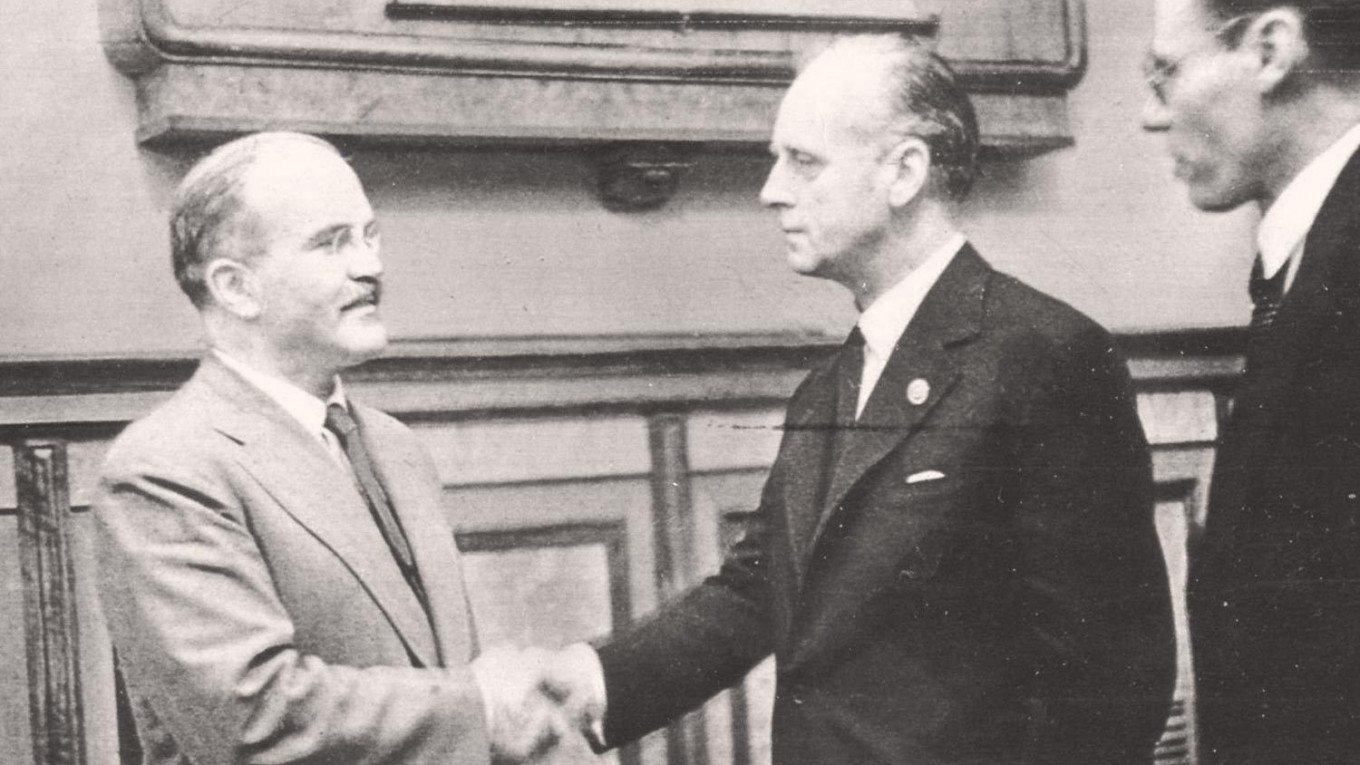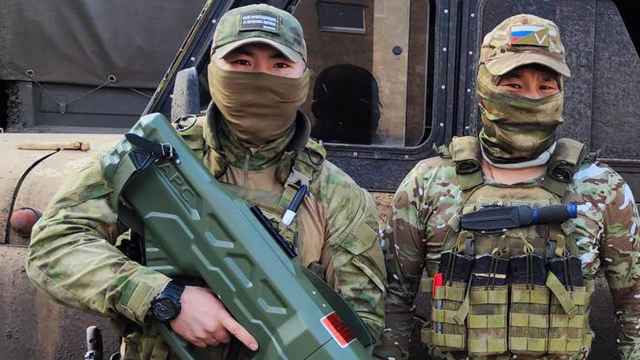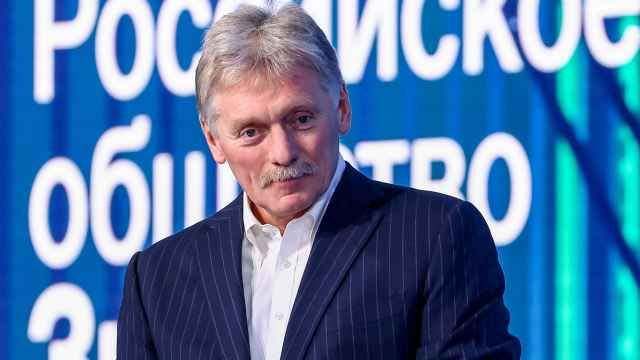As the proverb goes, the past tells us above all about the present. The current memory wars between Russia, on the one hand, and Central European countries, led by Poland, the Baltic states, and Ukraine, on the other hand, tell us more about current geopolitical tensions in Europe than they do about how to interpret the past.
The key questions of these memory wars are in fact the definition of Europe’s eastern border and Russia’s place in a pan-European context.
In these memory wars, two confrontational readings of the Second World War collide. The first, promoted by Russia and long shared by the West, states that the Soviet Union played a unique role in winning the war and should be celebrated for the human cost of its sacrifice — a narrative reiterated by Vladimir Putin in his June 2020 article in The National Interest.
The second, which gained visibility in the mid-2000s, reminds us that the same Soviet Union signed the Molotov-Ribbentrop Pact with Nazi Germany in 1939 and in its name occupied parts of Poland and Finland, as well as annexed the Baltic states — an interpretation put forward by, among others, Polish president Andrzej Duda and Ukrainian president Volodymyr Zelensky.
For the Central European states, this latter vision of history meets two existential needs: to impose a more plural and complex vision of the war and the Cold War decades than the dominant Western European view that the war ended happily in 1945 and was followed by three decades of prosperity; and to insist on their Europeanness by othering Russia as the antithesis of Europe.
For Russia, meanwhile, its right as an antifascist power to have a say in European affairs is at stake: as heir to the conqueror of Nazi Germany, Russia is entitled to have its voice heard and taken into consideration. But if the Soviet Union was in fact no better than Nazi Germany, then Russia cannot be accepted by the international community without repudiating its Soviet past.
In the eyes of historians, both readings are legitimate, highlighting the complexity of the war period.
The Soviet Union can have both allied itself with Nazi Germany for tactical reasons in 1939-1941 and defeated it in 1945.
The Central European countries, for their part, can both be victims of Nazi and Soviet occupation and still — like everywhere else in Europe, most notably Vichy France — have hosted collaborationist movements that helped the Nazis carry out the Holocaust.
But today’s geopolitical tensions force history into black-and-white dichotomies between Heroes/Victims and Villains.
This is where the label of fascism, with its power to make an actor guilty by association, comes into play: since the 2014 Russo-Ukrainian war and the 2016 U.S. presidential elections, Russia has been widely accused of being fascist — an easy way to delegitimize the opponent, call for its exclusion from the international community, and position oneself on the same moral level as Resistance heroes and Holocaust victims.
Yet this accusation does not stand up to scholarly analysis.
The Russian political regime can be criticized for its authoritarian tendencies, its high level of elite corruption, and its lack of independent justice, but this does not make it fascist.
To qualify for that infamous title, a regime must display certain key features: a utopian desire to build a new humankind through war and regeneration, a high level of indoctrination by an (aspiring) totalitarian regime, and mass mobilization and repression.
None of these are present in today’s Russia. Even comparatively modest attempts to promote patriotism and traditional values are met with circumspection by Russian public opinion, while elites are ideologically divided.
Of the many characteristics that mark a regime as fascist, Russia displays only one: a developed militia culture directly supported by state institutions.
This realm includes powerful security services and law enforcement agencies; private security companies (PSCs); historically rooted Cossacks; youth military training; far-right militias; new Orthodox vigilante groups; and ethnic militias such as the Chechen Kadyrovtsy.
Putin’s personal patronage of martial arts such as judo, sambo, and MMA, as well as biker culture, has also helped to nurture an aesthetic inspired by fascism.
Moscow’s support for the European far right is frequently invoked to “prove” the Russian regime’s supposed fascism.
This is indeed a disturbing component of Russia’s soft power strategy and contradicts the Kremlin’s claim to be a credible stakeholder in European affairs. Yet it cannot be uncritically accepted.
For one thing, the rise of European national-populist movements is mainly attributable to domestic factors and not to the support of Russia, which may amplify these forces but cannot be considered responsible for their success.
For another, this soft power niche constitutes only a relatively marginal component of Russia’s outreach to Europe; more influential tools include its classic public diplomacy and economic lobbying.
Mastering the label of “who is fascist” thus decides what the ideal Europe should be. If Russia is fascist, then Russia is to be excluded from Europe and portrayed as its antithesis, the constituent other of all the values embedded in the notion of Europe: liberalism, democracy, multilateralism, transatlantic commitment.
If, on the contrary, as Moscow declares, Europe is once again becoming “fascist,” then Russia points out a way ahead for the “real” Europe, Christian, conservative, geopolitically continental, and nation-centric, to recover.
The current fight to identify “who is fascist” is thus a struggle to define the future of Europe and whether or not Russia has a legitimate role to play in it.
A Message from The Moscow Times:
Dear readers,
We are facing unprecedented challenges. Russia's Prosecutor General's Office has designated The Moscow Times as an "undesirable" organization, criminalizing our work and putting our staff at risk of prosecution. This follows our earlier unjust labeling as a "foreign agent."
These actions are direct attempts to silence independent journalism in Russia. The authorities claim our work "discredits the decisions of the Russian leadership." We see things differently: we strive to provide accurate, unbiased reporting on Russia.
We, the journalists of The Moscow Times, refuse to be silenced. But to continue our work, we need your help.
Your support, no matter how small, makes a world of difference. If you can, please support us monthly starting from just $2. It's quick to set up, and every contribution makes a significant impact.
By supporting The Moscow Times, you're defending open, independent journalism in the face of repression. Thank you for standing with us.
Remind me later.








